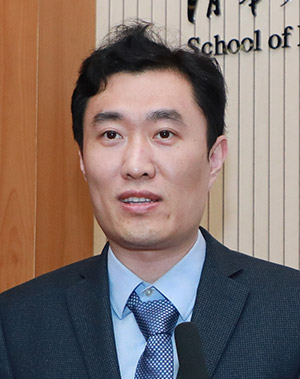
Life Sciences

Liang Ge, a tenured associate professor at the School of Life Sciences, Tsinghua University, obtained his bachelor's degree from Shandong Normal University in 2005 and his doctoral degree from the Shanghai Institute of Biochemistry and Cell Biology, Chinese Academy of Sciences, in 2011. From 2011 to 2017, he conducted postdoctoral research at the University of California, Berkeley. In 2017, he joined Tsinghua University's School of Life Sciences, Center for Life Sciences, and State Key Laboratory of Membrane Biology.
Currently, Liang Ge serves as the vice chairman of the Subcellular Structures Division of the Chinese Biophysical Society and the vice secretary-general of the Organelle Division of the Chinese Society for Cell Biology. He is also an editorial board member for journals such as Traffic, JGG, Science Bulletin, Biochemistry and Biophysics Progress, and a young editorial board member for SCIENCE CHINA Life Sciences. He has received awards such as the New Corner Stone Xplorer Prize, VCANBIO Award for Innovations and Breakthroughs in Life Sciences and Medicine, and the Young Scientist Award from the Chinese Society for Cell Biology. He has also received funding as a principal investigator of the Major Research Program on Organelle Interactions funded by the National Natural Science Foundation of China, the Outstanding Young Scholar Fund of China, and the NIH Pathway to Independence Award.
Discovery of New Mechanisms Key for Protein Targeting
The precise transport and localization of proteins play crucial roles in cellular activities. Liang Ge has long been dedicated to the study of membrane vesicle transport and protein targeting, achieving significant breakthroughs in both protein secretion and the targeting of key proteins in cellular autophagy.
In the field of protein secretion, it is well-known that proteins with signal peptides are accurately targeted to the endoplasmic reticulum during the classical secretion process, with groundbreaking research in this area having been recognized with multiple Nobel Prizes. However, the non-classical targeting mechanism of proteins without signal peptides has long been incompletely understood. In this domain, Liang Ge's laboratory has discovered a novel protein transport pathway called the THU pathway, revealing the targeting mechanism of non-classical secretion proteins. This discovery has opened up new research directions in the field of non-classical protein secretion and provided a key breakthrough in our understanding of non-classical secretion mechanisms (Cell, 2020).
In the field of autophagy, our understanding of how autophagy clears solid toxic protein aggregates has been limited. This process is crucial in various major neurodegenerative diseases, including Alzheimer's disease, Parkinson's disease, and amyotrophic lateral sclerosis (ALS). Ge Liang's laboratory has established a unique in vitro reconstruction system in the field of autophagy and discovered a novel autophagic receptor named CCT2. This receptor has specificity and can identify and selectively guide solid toxic protein aggregates to the autophagic pathway for degradation. This discovery not only provides a new perspective for a deeper understanding of the role of autophagy in neurodegenerative diseases but also offers a novel therapeutic strategy for the future treatment of various major neurodegenerative diseases (Cell, 2022).